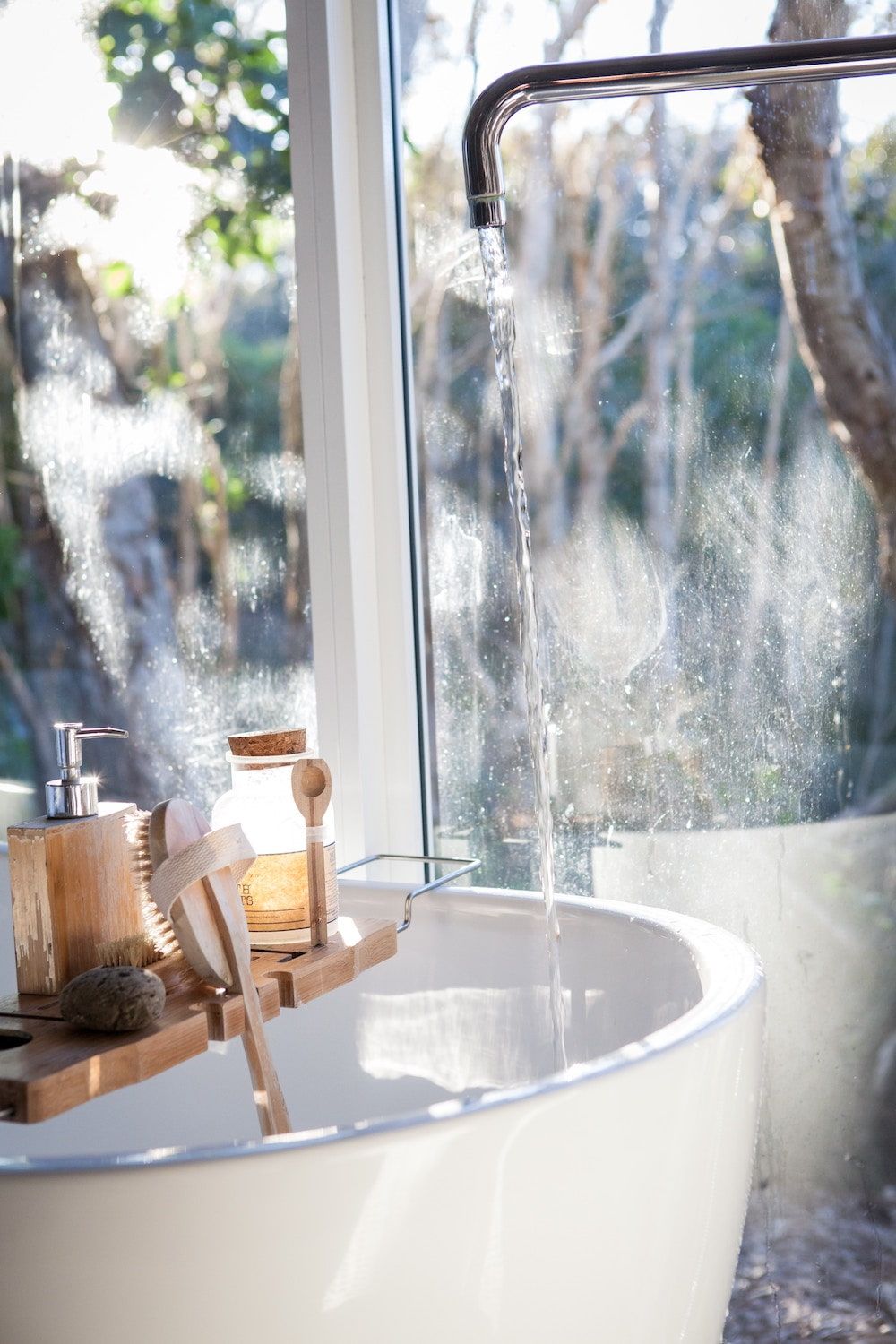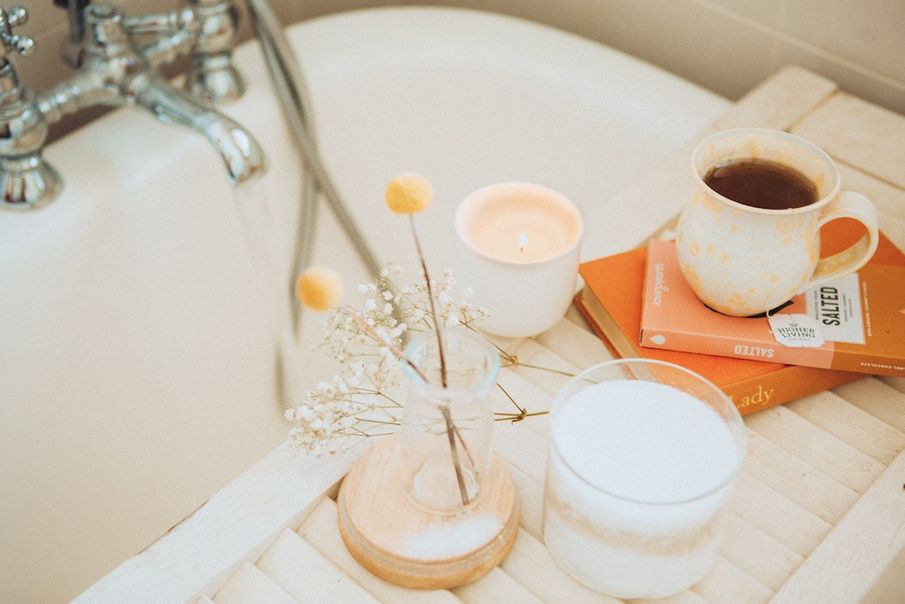A good bath might be seen as a little luxury now and then, but beyond some essential self-care, it actually has scientifically proven benefits for your mental health
Throughout history, bathing has always been about more than just personal hygiene. Cleanliness was seen as a symbol of power and beauty in ancient times, and baths were taken publicly as a way to socialise and build communities.
Nowadays of course, a hot bubble bath is associated with solitude and self-care, a little luxury that many of us look forward to after a stressful day, or a tough workout. But studies show that the benefits of bathing are more than just skin deep.
In a German study, participants with depression reported a boost in mood after soaking in a 40C bath for 30 minutes. In fact, in this experiment, regular baths proved to be more effective in aiding depression than aerobic exercise.
A Japanese study also looked into the mental health benefits of bathing, this time, in comparison to showering. They found that bathing resulted in less stress, tension-anxiety, anger-hostility, and depression, in the people who took part.

It’s believed that hot baths are particularly transformative because they warm us up. Increased body temperature at night helps synchronise our natural circadian rhythms, leading to better sleep patterns, along with improved quality of sleep and overall wellbeing.
In an article published on PsychologyToday.com, Peter Bongiorno, ND, LAc explains that bathing can even lead to chemical changes in the brain.
He writes: “Decreases in stress hormones (like cortisol) have been reported with water bathing (Toda et al., 2006). It has also been shown that water bathing may also help the balance of the feel good neurotransmitter, serotonin (Marzsziti et al., 2007).”
But before you get lathered up, here are a few tips on how to create a soothing experience that will help you rebalance in the comfort of your own home.
1. Get the temperature spot on
Warm baths help ease physical tension, relax anxious muscles, and give you that orgasmic, loosey-goosey feeling when you’re tightly wound. They can even aid with digestion problems, and lower blood sugar levels.
The perfect bath for a healthy adult should be between 40–45C, ideally in a room that is 25C. This magical combination will increase body temperature in a comfortable way, due to the reduced cold stress from the exterior environment.
2. Essential oils
Aromatherapist and Therapy Directory member Megan Viney explains that although lavender is a firm favourite with those looking to relax, it’s not the only choice.
“Vetiver is a brilliant option for settling the mind, and frankincense is renowned for helping let go of worries,” Megan notes.
For a good night’s sleep try ylang ylang, and to invigorate, try a citrus oil such as petitgrain or bergamot. Why not take it a step further and add fresh rose petals to your bathwater? This creates a soothing rosewater scent that is suitable for even sensitive skins.
It’s important to always use a carrier oil to dilute your chosen essential oil, otherwise they may cause skin irritation. A good rule of thumb when making a 2% dilution is to add 12 drops per 30ml of oil.
3. Light it up
Keep your mind quiet, and focus on the present moment. The sound of the water. The complete relaxation
Many of us are exposed to blue light all day in the form of computers and mobile devices, leaving us mentally drained and prone to headaches. If your bathroom has lots of natural light, then consider a daytime bath. Not only does it feel like the ultimate extravagance, but natural light can lead to an improved sense of wellbeing, and better sleep. In the evening, consider leaving the lights off and bathing by candlelight, as exposure to artificial light at night suppresses melatonin, interfering with sleep timing and quality.
4. Set the tone
It can be tempting to prop up your iPad and catch up on your favourite Netflix shows while you’re in the tub, but we recommend leaving technology out of the equation. Remember that draining blue light? Instead, enjoy the silence, or envelop yourself in a natural soundtrack like rainforest sounds or lapping waves. Studies show that nature sounds can decrease the body’s sympathetic response (that anxiety jolt that comes from fight-or-flight) and can increase feelings of relaxation.
5. Meditate
If you struggle to meditate in a normal setting, then try a few minutes in the bath. Your body is already physically relaxed, which should make it easier to empty your mind and zen out in your hydrating haven. Simply close your eyes and concentrate on long, deep breaths. Keep your mind quiet, and focus on the present moment. The sound of the water. The smell of essential oils. The complete relaxation.


Comments